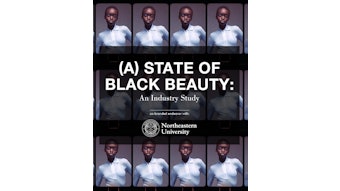Symrise and Sniffapalooza, led by founder and director, Karen Dubin, and executive operations manager, Karen Adams, partnered to present a multi-sensory presentation in Symrise’s Creative Studio in New York City, focusing on Russia: Extremes and Paradoxes.
Extensive research conducted by Symrise on Russia’s emerging market provided insight into the current fragrance industry, consumer preferences, lifestyle and olfactive trends. The presentation, by Doreen Bucher, senior director of marketing, fine fragrance, Symrise, and Jeanine Dzuroska, vice president, consumer and market intelligence, scent and care division, Symrise, explored the history of Russia as well as current conditions.
“While there is great income disparity in today’s Russia, we are interested in the middle class, because they are the ones spending more money on beauty products, and beauty for women is part of the Russian heritage,” Bucher said.
Joining the group were Symrise perfumers Jean-Claude Delville, vice president and senior fine fragrance perfumer, and Christelle Laprade, perfumer, who commented on the variety of fragrance families explored in the conceptual platforms, including White Spring, Green Fall, Red Summer and Golden Winter, part of the Wonders of Nature concept; Baby Swan and Black Princess in Epic Romanticism; and the luxury platform of Luxe Fantastic and Luxe Radikal, in the Splendor Forever concept.
Delville noted that the fragrance market in Russia is undergoing a change as younger consumers develop a different language for describing and experiencing fragrance. Hence, their expectations are also changing. “There is a lot we are borrowing from flavors that we were not using before. We try to be inspired by everything,” Delville said. “We have reinvented rose and violet for men, and at the same time we are exploring new territories. From Russia to China, to India—everything is based on sensation. We take curry, for example, and take it somewhere else. Curry for us is the starting point. You have to keep an open mind. Good fragrances have no sex. As long as you like it, that is your own personal pleasure.”
Givaudan Revisits Its Roots
As a fragrance house that has both evolved and converged throughout the years, Swiss company Givaudan, which merged with Roure to become Givaudan Roure in 1991, began with talented perfumers devoted to their art. Its heritage, supported by the Givaudan Perfumery School in Grasse, France—founded in 1946 by Jean Carles, who created a method for classifying olfactory notes, and currently led by Jean Guichard—is continuing its tradition of educating and training perfumers with a new intensity, including transitioning to become a place where industry professionals can hear guest speakers, and both olfactive and social constructs may be explored as a destination devoted specifically to enhance learning.
Kate Greene, vice president of marketing, Givaudan, related the details on the company’s return to its roots in a recent presentation on the perfumers of Givaudan and the history of the company. Greene said, “With all the technology and innovation in fragrance, you don’t do anything without talented perfumers.” She cited Calice Becker, who created J’Adore for Christian Dior, and others, who are the true talent in fragrance creation. Such Givaudan perfumers as Claude Dir, Rodrigo Flores-Roux, Ellen Molner, Yann Vasnier and Aurélien Guichard, are featured in a new book, Givaudan Talents, representing the new organization that Givaudan has become. “As we are looking forward, we are also looking back, which is why we are going back to the foundations of the Perfumery School,” Greene said. “We recognize what a rich history Givaudan has, and we are tracing our roots back to that core.”
Greene noted that since the acquisition of Quest International, Givaudan is becoming a new organization. “It’s the coming together of two cultures, and we are looking at the talent, as well as The Perfumery School as big pieces of it,” she said. Clearly, the new Givaudan, incorporating Roure and Quest heritages, is impacting the company’s direction. Acknowledging Quest’s history, Greene announced the arrival of an olfactive historian, who would be joining the company as a consultant and a contributor to the training that will be taking place at the Perfumery School. The training will include both social history and olfactive history, she added, alluding to the importance of fragrance genealogy in the creative process.










